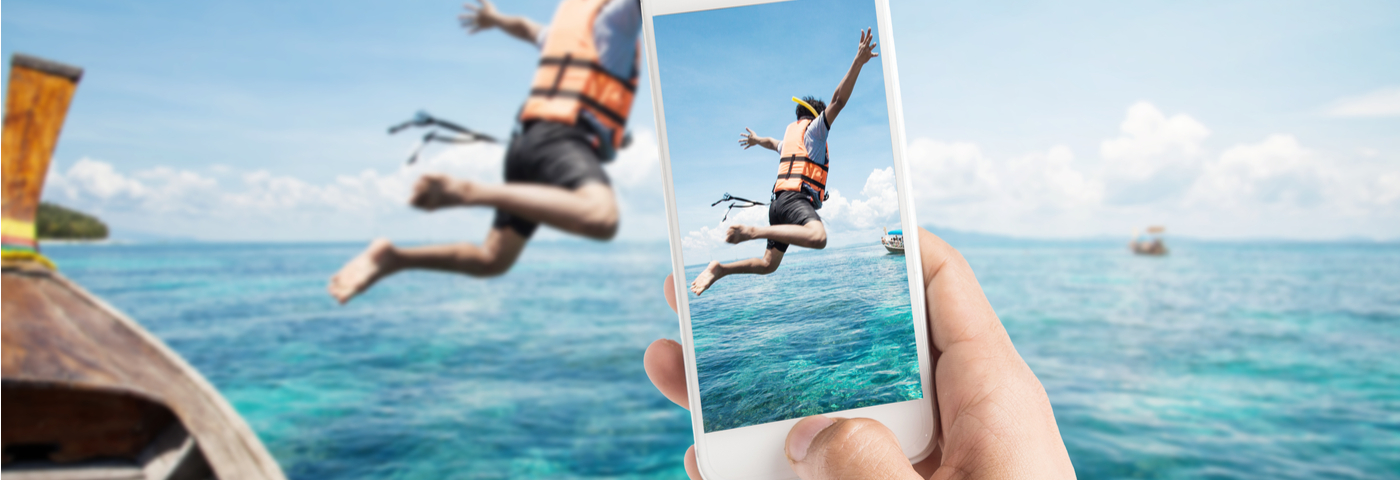by Marília Borges, Research Analyst for Euromonitor International
Whether it is when consumers are deciding which experience to have, during the experience itself, or even after it has ended, technology is going to play an increasing role in their interactions with brands, by allowing them to share their stories and photos online with friends and family. Whether through virtual reality, augmented reality headsets or apps, like blippar.com, which are used to complement the user’s involvement with a real-life situation, what we know is that reality is already being mixed and digitized. This means that the experience does not even have to be real for consumers to enjoy it and interact with it.
In the tourism context, Expedia, for example, leverages augmented reality technologies to emulate trips. One of the examples of this is Virtual Flam, which simulates the experience of travelling on the Flam railway in Norway (considered to be one of the most exuberant in the world) on any mobile device that has virtual reality functionality. The company, which has invested heavily in technology in recent years, is also experimenting with artificial intelligence (AI) and natural language recognition, as it seeks to incorporate voice into the booking experience.
Also in the context of augmented reality, we have the example of the Marriott. The Marriott Renaissance New York Midtown Hotel is a pioneer in the “experience hotel” concept. The idea behind it is that of a “living building” that provides a multisensory digital experience. Using motion detectors and 3D cameras, the hotel offers art that changes in real-time and a virtual concierge in an environment in which the guests move easily through a digitally-enhanced reality.
Singularity under construction
In a context in which technology is assuming a growing importance in the relationship between consumer and brand, personalization becomes key to companies. The idea is to enable consumers to engage more deeply – and therefore make them more loyal – and to make a bigger return on investment feasible, which is fundamental in the age of price comparison.
The question that arises is: how is it possible to personalize service provision more and more? The answer may lie in big date; 63% of the 2017 Euromonitor Global Consumer Survey respondents said they were comfortable using a chatbot or other AI when researching travel options in January 2017. We are seeing consumers who are increasingly likely to bring AI into their decision-making. This provides brands with the opportunity to get to know their consumers better through big data so they can offer them personalized options and, at the end of the day, provide them with experiences they consider to be special.
An example of this comes from the accommodation reservation market. Travelsify is an online hotel booking platform that ranks each hotel according to 34 attributes and allows users to choose their accommodation based on their emotional state instead of making their reservations based solely on a predefined list of amenities. In an increasingly fragmented scenario in the reservation market, brands are looking for innovative functionality in order to stand out, such as emotional search in natural language. Customizing offers to streamline choices for consumers so the options on offer meet their needs more precisely will narrow the gap between expectation and experience.
Future opportunities
Among the opportunities for the next few years, we believe that consumers will actively seek stimulating experiences and pay a premium for the services they perceive as having the highest added value. In this context, data capture and AI can help brands optimize the customized offering of services to these demanding consumers who are becoming increasingly conscious of the value of their time; the use of natural language to provide a customized but simplified online booking experience is a good example of this. This opens up an unprecedented opportunity to rethink the long-term relationship between consumers and the brand.
To find out more, download the Euromonitor International report that was presented at WTM Latin America 2018: https://bit.ly/2qp7KzK
About Euromonitor International
Euromonitor International is a global consumer goods and services market research and consultancy firm. With its head office in London and more than 40 years’ experience, it is the leading provider of business intelligence and strategic market analysis for companies worldwide. It offers customized research solutions and annually publishes information about performance and trends in 30 industries across 80 countries, as well as adding demographic and socioeconomic data of countries and consumers.


